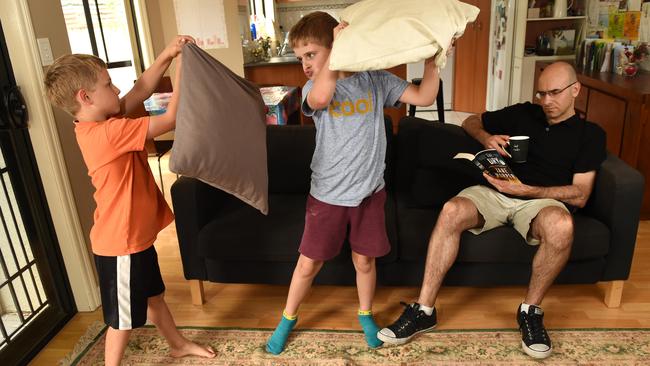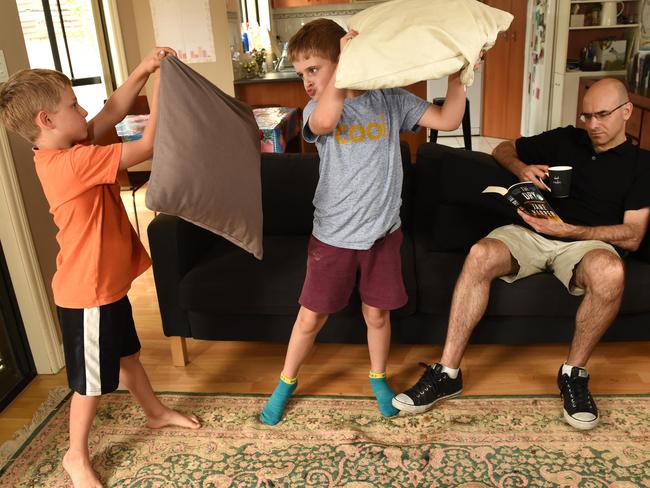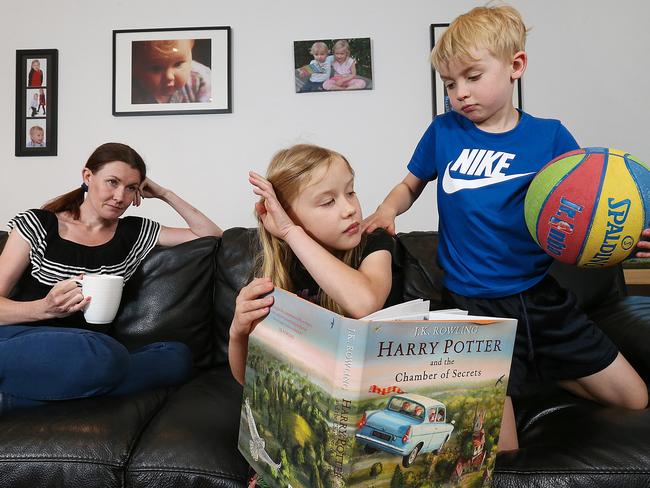How parents can tackle warring kids these holidays
IF squabbling children have turned your house into a war zone these school holidays, you’re not alone, but parenting experts say sibling rivalry is natural.

School Holidays
Don't miss out on the headlines from School Holidays. Followed categories will be added to My News.
IF squabbling children have turned your house into a war zone these school holidays, you’re not alone.
But parenting experts say sibling rivalry is natural and often the best approach is to take a deep breath and a step back.
ENTITLED KIDS DON’T HEAR ‘NO’ ENOUGH
TEACHERS TURN TO CREATIVE REWARD SYSTEM TO IMPROVE BEHAVIOUR
HOW TO RAISE HAPPY KIDS: WHAT MAKES A GOOD CHILDHOOD
Parenting author Pinky McKay said young children could sometimes struggle to adjust to having extra free time when the routine of school days was suddenly gone.
While this could lead to bickering and fights between siblings, Ms McKay said it was important children learned to manage on their own.
“You can’t be responsible for their boredom,” she said.
“You can help them with some ideas to get started … but you shouldn’t have to be the all-dancing, all-singing entertainment the whole time.”

Ms McKay said children were often more resilient than most realised and should learn to resolve conflict themselves. “Try and let them sort it out as much as possible.
“They often come to really good decisions themselves rather than having us mediate everything,” she said.
The mother of five said most sibling squabbles could be monitored from afar but if things turned violent, that’s when parents should step in.
“If it gets physical, definitely stop them — they can’t hurt each other,” she said.
Ms McKay suggested taking children to “neutral territories” such as parks or bushwalks where they could run off steam and there was “nothing to fight over”.
Rose Livingston, a mother of two, said her children were likely to bicker if they were tired or needed to burn off some energy.

The 40-year-old from Vermont South said she tried to let the kids “sort themselves out” most of the time.
“I don’t want to come in and it becoming ‘he said, she said’,” Ms Livingston explained.
“I often tell them to put themselves in the other person’s shoes.”
Ms Livingston said it was important that her children, Vicky, 9, and Josh, 7, learned to get along with one another.
“I’m actually quite lucky that they don’t fight much,” she said.
“But on the rare occasion that one hits the other, I tell them to hold hands until they feel better.”
LOOK AFTER EACH CHILD’S NEEDS
Make special time with each child regularly so they are not trying to compete for affection or attention.
SET CLEAR FAMILY RULES
Set rules about how you expect them to treat each other and stick to them.
SET UP ROUTINES
It’s easier to handle disagreements about everyday things when you have a routine. It means everyone knows who sits where, who does what chores and who’s first in line for the PlayStation or bathroom.
CATCH THEM BEING GOOD
Give positive feedback when they’re behaving well.
COACH YOUR CHILDREN
Teach them how to handle disagreements and guide them towards skills for managing anger, negotiating and playing fair.


